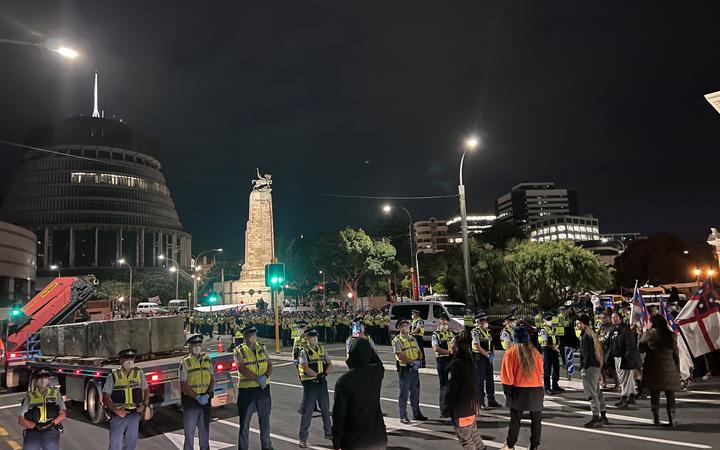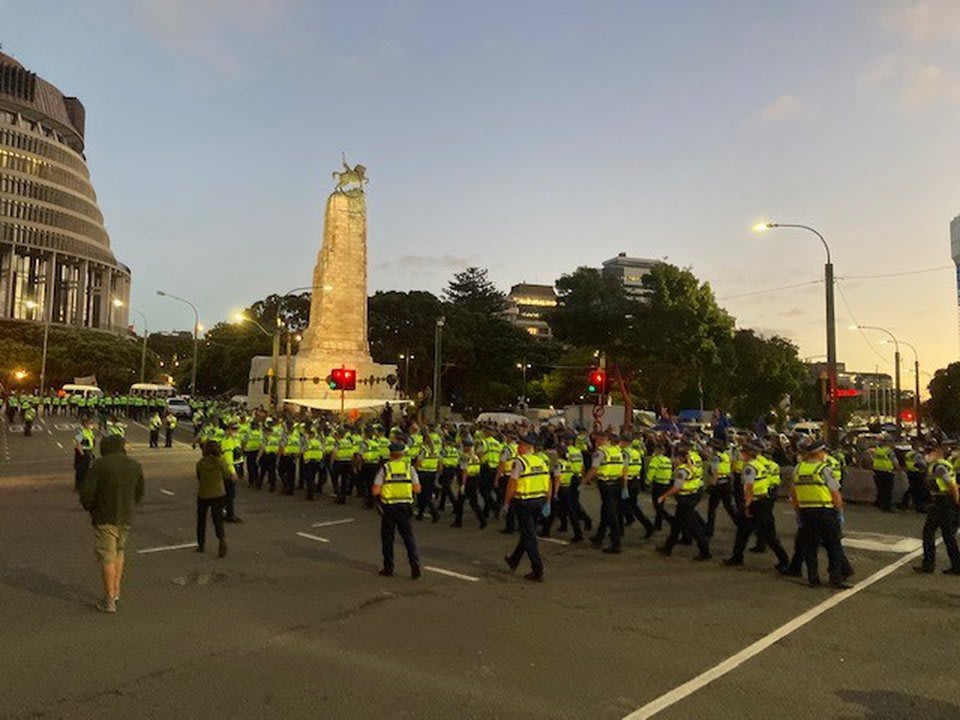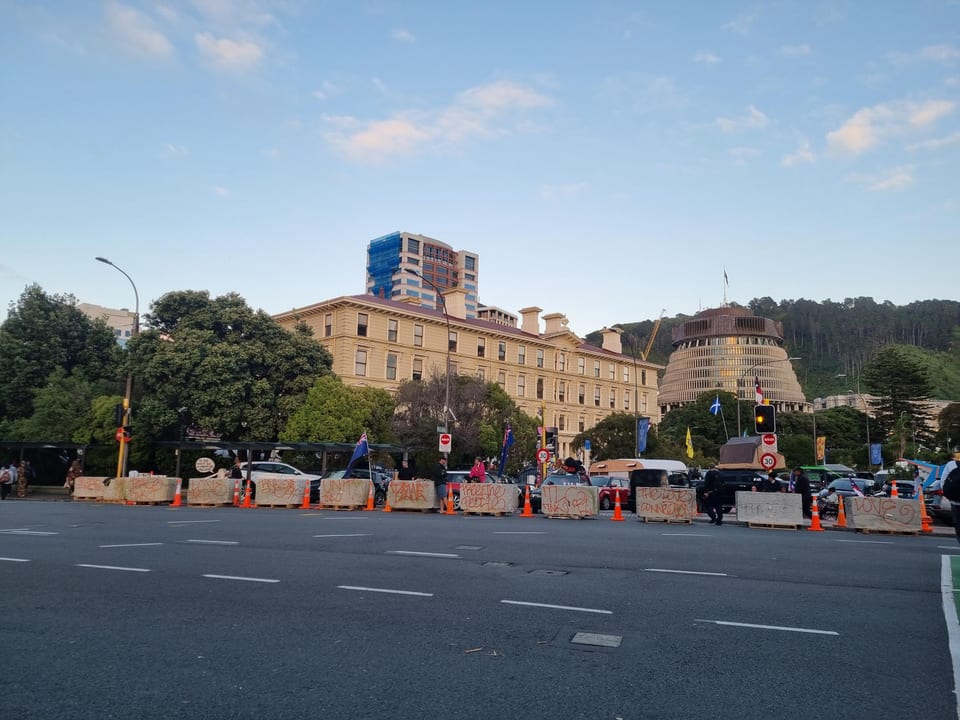A police operation near Parliament began around 4am to strengthen barriers in the streets around the anti-mandate protest zone
* This story first appeared on RNZ and is republished with permission *
Police and protesters are facing off this morning in two streets near Parliament, as trucks and forklift drivers arrive with concrete blocks to reinforce the perimeter of the occupation.
Officers are lined up on the outside of concrete barriers on Aitken Street and Featherston Street.
More protesters are coming in to reinforce those lined up inside the barriers, who are yelling "hold the line" and "keep it peaceful".
On Featherston Street protesters have been seen climbing onto the trucks trying to stop the barricade.

Videos posted to social media show forklifts installing concrete barricades in the streets, and multiple people being arrested as crowds of protesters push back.
Nearby residents say the commotion began shortly after 4am, when officers lined up on Aitken Street and Featherston Street.
Officers were also seen attempting to tow cars.
Police have confirmed what they call a traffic management operation is underway near the protest area, and say they will give an update later in the morning.

Police have drawn back from a standoff with protesters at Lambton Quay in Wellington.
Earlier this morning concrete blocks were installed at several streets around Parliament.
Police drew back a short time after the blocks were installed at Lambton Quay, moving back to the back entrance of Parliament.
Protesters followed police as they walked back up Bowen Street, and some have remained at the blocked off entrance on Museum Street.

Wellington mayor Andy Foster was in the city early this morning and says the police's action should help to keep the protest confined. Concrete blocks will prevent other vehicles joining the blockade but protesters can take their vehicles out, he says, but he is not sure how extensive the traffic management operation will be.
Prime Minister Jacinda Ardern says the police operation was intended to stop the protest there growing, or causing more disruption. Ardern received an update from police chief Andrew Coster this morning.
She told Morning Report the disruption caused by the protesters was extraordinary, and everything would be resolved if people just went home. Ardern says she supports the police but won't always understand or agree with every decision they make.
Commuters are advised to expect road closures only around the vicinity of Parliament, and to consider alternative travel routes.
Meanwhile, Wellington Hospital's chief medical officer says anyone at the protest outside Parliament who has Covid-19 symptoms should go home or contact their GP or community health service, rather than heading to the hospital.
Dr John Tait said Wellington Hospital had plans in place to deal with an influx of sick, infectious people with coronavirus, but planned surgeries and outpatient clinics would be delayed.
He said it would be preferable for protesters with symptoms of Covid-19 to be managed in the community.
His comments come as the Ministry of Health reports 2365 new community cases of Covid-19 in New Zealand today, and two deaths.
"As we all know, our ED is under some degree of stress, so certainly we'd prefer [the protesters] to go home, and if not, to contact a general practitioner or community service."
Tait said a temporary inpatient screening zone had been set up at the hospital.
"Everyone is screened coming through and if you're considered high-risk, then you'll be off for a swab. If you're unvaccinated, that does put you into the high-risk group."
He said if anyone refused a test they would be treated as if they were positive for Covid-19 and isolated.
"If they refuse to wear a mask, then we put them into a separate area and basically shut the door."
Tait said he was not aware of any patients who had yet needed to be isolated for refusing to wear a mask or be tested.
There were 54 cases of Covid-19 reported in Capital and Coast DHB's jurisdiction yesterday.
Tait said the growing number was a concern but he was confident the hospital had adequate systems in place to manage any spike in cases.
"We're obviously concerned but we do believe we've got the processes in place."
He said any surge in cases presenting at the hospital driven by an outbreak amongst protesters would add stress to the system but he was confident the hospital could cope.
"There's no doubt that it will potentially add to a very - already stretched - ED, but we do believe our processes and systems will be able to cope with that and that we'll be able to ... ensure the safety of our staff and those patients already in hospital and manage to provide treatment and support for all those."
Tait said elective care would bear the most impact from any Omicron outbreak.
"If we do get a major influx of patients into the hospital, we will be having to obviously reduce things like elective surgery and outpatient clinics."
He said he was more concerned about patients who came to the hospital seeking treatment for something other than Covid-19 who were subsequently found to be Covid-19-positive, than he was about patients coming in because they were unwell with the virus.







